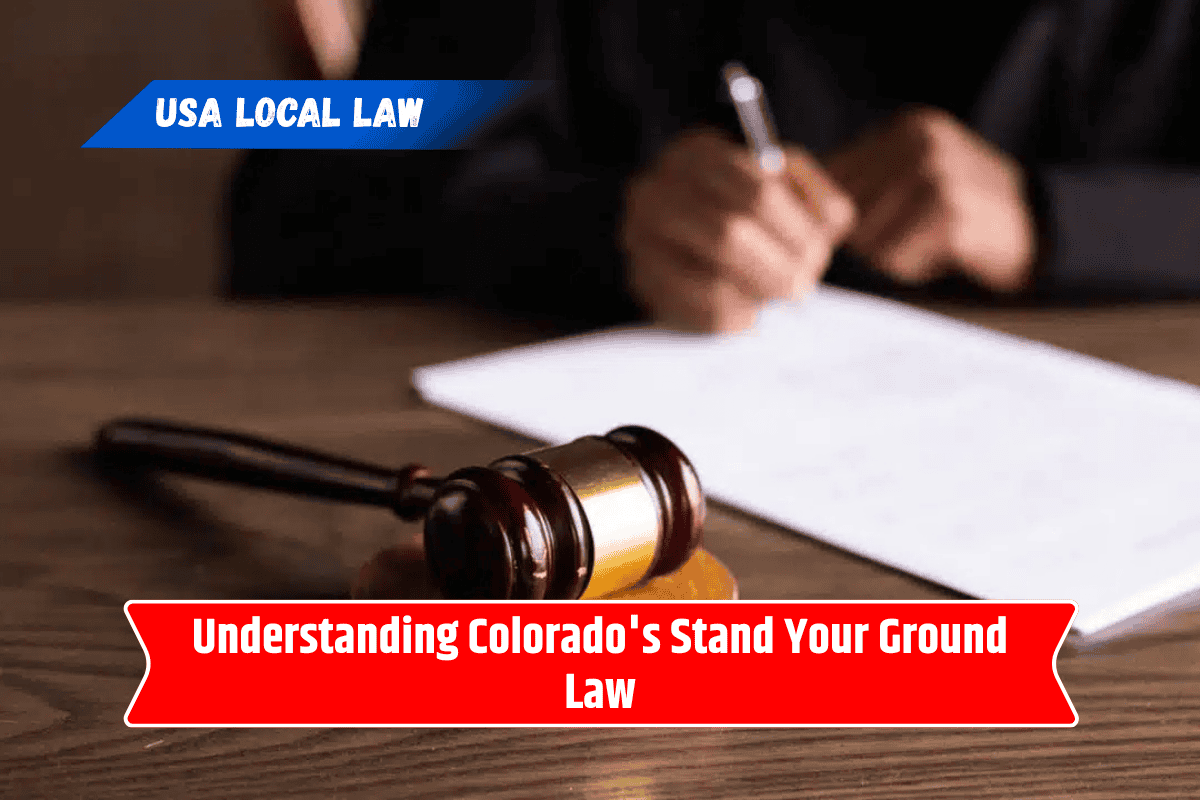Colorado’s Stand Your Ground law is part of the state’s self-defense laws, allowing individuals to protect themselves when they reasonably believe they are in imminent danger of harm.
While Colorado has a self-defense statute, it differs from some other states with specific Stand Your Ground laws that remove the duty to retreat before using deadly force. Here’s what you need to know about Colorado’s laws regarding self-defense and the use of force.
Colorado’s Self-Defense Law
Colorado’s self-defense laws allow individuals to use force to defend themselves, their property, or others, but there are important conditions attached. In Colorado, the use of force is justified under two primary circumstances:
- Reasonable Belief of Imminent Threat: You can use force if you reasonably believe that you are facing imminent physical harm or death. The threat must be immediate and not hypothetical or anticipated in the future.
- Proportional Force: The force used in defense must be proportional to the threat you are facing. Deadly force can only be used if you reasonably believe it is necessary to prevent death or serious bodily injury.
Colorado’s “No Duty to Retreat” Principle
Unlike some other states with explicit Stand Your Ground laws, Colorado operates under the “no duty to retreat” rule but only in specific situations. This means that:
No obligation to retreat: If you are in a place where you have a legal right to be (such as your home or another public area), you do not have to retreat before using force to defend yourself against an attack.
In your home: Colorado has a Castle Doctrine that allows individuals to use force, including deadly force, to protect themselves from intruders in their own home without needing to retreat first.
Key Differences with True Stand Your Ground Laws
While Colorado does not have an explicit Stand Your Ground law like some other states, it does share some similarities. Here’s the distinction:
Stand Your Ground States: In these states, a person can use deadly force to defend themselves anywhere they have a legal right to be (not just in their home) without the obligation to retreat.
Colorado’s Law: Colorado’s laws allow individuals to use force when they are in a place they are legally entitled to be. However, the law’s focus is on whether the person reasonably believed they were facing imminent danger rather than an absolute right to stand firm and use deadly force in any situation.
The key question in Colorado is whether retreat was feasible and whether the use of force was proportional to the threat.
Important Considerations
- Burden of Proof: In a self-defense claim, the person asserting self-defense in Colorado is required to provide evidence to show that they were acting in reasonable self-defense. It is not automatic that self-defense is accepted as a legal justification. The prosecution can challenge the claim in court.
- Duty to Avoid Violence: If you can safely avoid the confrontation without using force, such as retreating or de-escalating the situation, you are generally encouraged to do so. Colorado law supports the use of reasonable force, but it does not encourage escalation or violence when avoidance is possible.
- Deadly Force: Deadly force is only justifiable under Colorado’s laws if a person reasonably believes that it is necessary to prevent death, great bodily injury, or the commission of a forcible felony. Even in situations where you are not required to retreat, deadly force should only be used when absolutely necessary.
Castle Doctrine in Colorado
As part of self-defense law, Colorado adheres to the Castle Doctrine, which grants individuals the right to defend their home against intruders. Under this doctrine, if someone unlawfully enters your home, you have the legal right to use force, including deadly force, to protect yourself and others inside your residence.
Colorado’s self-defense laws incorporate elements similar to Stand Your Ground laws, primarily through the no duty to retreat principle in certain circumstances.
However, the use of force in self-defense must be based on reasonable belief and proportionality to the threat faced. It’s important to understand that, while you are allowed to defend yourself, the laws emphasize reasonable actions and restraint in conflict situations.
If you’re considering using force for self-defense, it’s essential to be aware of Colorado’s laws, as the circumstances and details of each situation can significantly affect whether the use of force is legally justified. Always consult a legal professional for specific advice related to your situation.
